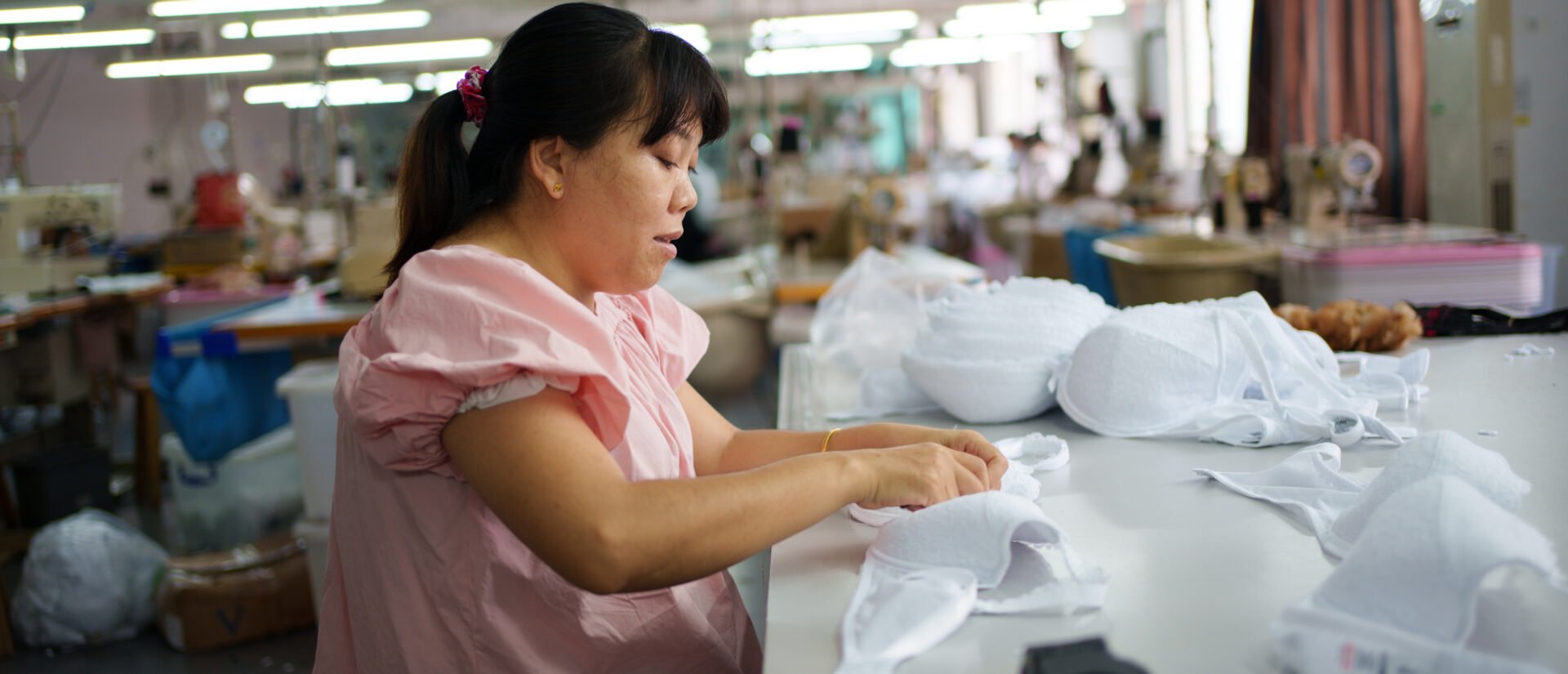
Chain of consequences
How Chinese workers pay for supply chain de-risking
Multinationals have relied on China’s seemingly endless supply of cheap labour for decades. The hyper-globalised economy and modern consumer culture are largely built on the backs of Chinese factory workers who make our smartphones, running shoes, T-shirts, and laptops. However, corporations have recently started to shy away from producing in China, with devastating consequences for workers.
Driven by economic and geopolitical tensions and pandemic disruptions, big apparel and electronics brands are shifting production away from China to mitigate financial risks in their supply chains. Assessing what this shift means for workers is not easy due to China’s closed political context, but innovative research by SOMO and China Labour Bulletin (CLB) indicates that the Chinese workers who have kept supply chains running in the apparel and electronics sectors for decades are struggling to get paid, often at the same time that they are losing their jobs.
Surge in strikes strong indicator
Data collected through CLB’s Strike Map(opens in new window)
shows that strikes and protest actions by Chinese manufacturing workers increased tenfold in 2023 from the previous year, a strong indicator of growing worker dissatisfaction. Labour actions in the electronics and apparel sectors accounted for 55 per cent of the 438 incidents recorded by CLB during the year.
Reduced orders in these sectors led to widespread wage arrears and the closure or relocation of factories. When a factory relocates, workers are often offered less compensation than they are entitled to by law. In many cases, Chinese workers do not receive advance notice or sufficient information about decisions to close or relocate a factory or the compensation they will get.
Failing human rights due diligence
To effectively fulfil their obligations under the emerging human rights due diligence framework, global brands and retailers must recognise and address the impact that decisions to change their sourcing will have on workers in their supply chains. Otherwise, Chinese workers risk becoming the latest victims of an economic system that privileges the free movement of global capital and disenfranchises low-wage workers.
There is nothing inherently wrong with companies taking a closer look at their supply chain risks and diversifying their sourcing practices. However, corporations cannot simply shift risk onto the backs of workers. The struggles Chinese workers face as multinational corporations de-risk their supply chains are a stark reminder that the global economic system needs an overhaul. It’s time to prioritise human rights alongside the bottom line.
-
 Chain of consequences (pdf, 1.93 MB)
Chain of consequences (pdf, 1.93 MB)

Do you need more information?
-

Joshua Rosenzweig
Senior Advisor on Business and Human Rights & China
Related news
-
 The hidden human costs linked to global supply chains in ChinaPosted in category:News
The hidden human costs linked to global supply chains in ChinaPosted in category:News Joshua RosenzweigPublished on:
Joshua RosenzweigPublished on: -
 Major brands sourcing from China lack public policies on responsible exitPosted in category:News
Major brands sourcing from China lack public policies on responsible exitPosted in category:News Joshua RosenzweigPublished on:
Joshua RosenzweigPublished on: -
Linking labour issues in China to global brands Published on:Posted in category:Publication


